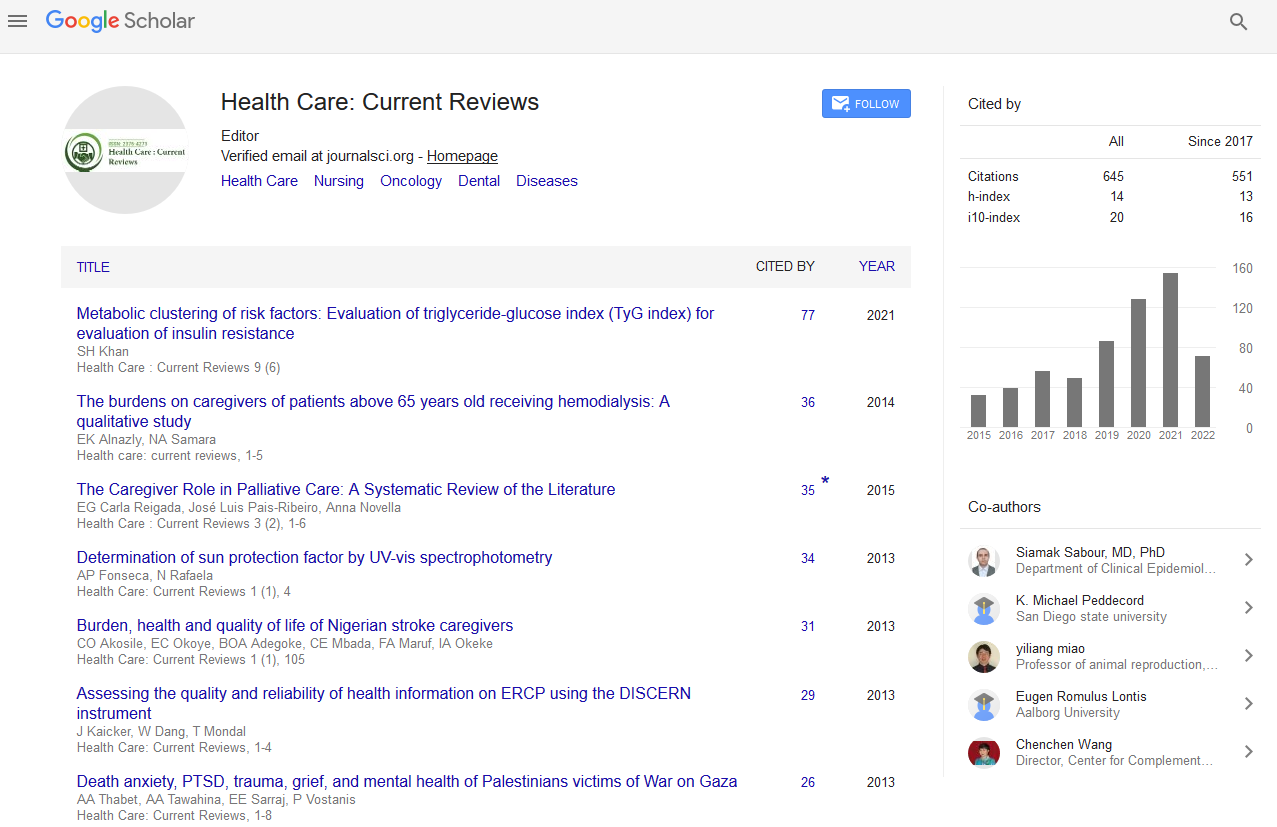PMC/PubMed Indexed Articles
Indexed In
- Open J Gate
- Academic Keys
- RefSeek
- Hamdard University
- EBSCO A-Z
- Publons
- Geneva Foundation for Medical Education and Research
- Google Scholar
Useful Links
Share This Page
Journal Flyer

Open Access Journals
- Agri and Aquaculture
- Biochemistry
- Bioinformatics & Systems Biology
- Business & Management
- Chemistry
- Clinical Sciences
- Engineering
- Food & Nutrition
- General Science
- Genetics & Molecular Biology
- Immunology & Microbiology
- Medical Sciences
- Neuroscience & Psychology
- Nursing & Health Care
- Pharmaceutical Sciences
A REPRODUCIBLE, SUBJECTIVE LIMIT IN INTAKE
7th World Congress on Healthcare & Technologies
September 26-27, 2016 London, UK
Mario Ciampolini
University of Florence, Italy
Keynote: Health Care: Current Reviews
Abstract:
Background: Hunger has often components that are conditioned by time, social behavior and sight of food. Blood glucose concentration (BG) is a biomarker of current energy availability and of hunger. Objectives: Investigating whether energy per meal reduction may allow BG to fall to low levels, when feeding behavior is (mostly) unconditioned and can be recognized. Methods: Subjects of the experimental group (trained; n = 80) were trained to ignore meal times and to pay attention to their earliest sensations of hunger or discomfort, so to measure glucose (blood glucose,BG) with a glucometer for two weeks. The control group was untrained; n = 78). After 7-week, all subjects were asked to estimate their preprandial BG that was simultaneously measured through a glucose autoanalyzer. Results: Estimated and measured glycemic values were found to be linearly correlated in the trained group (r = 0.82; p = 0.0001) but not in the control (untrained) group (r = 0.10; p = 0.40). Fewer subjects in the trained group were hungrier than those in the control group (p = 0.001). The 18 hungry subjects of the trained group had significantly lower glucose levels (80.1 ± 6.3 mg/dL) than the 42 hungry control subjects (89.2 ± 10.2 mg/dL; p = 0.01). The estimation error of the entire trained group (4.7 ± 3.6%) was significantly lower than that of the control subjects (17.1 ± 11.5%; p = 0.0001). Conclusion: Patients could be trained to accurately estimate their blood glucose and to recognize their sensations of initial hunger at low glucose concentrations.
Biography :
Mario Ciampolini has been Graduated from The University of Florence, Italy as Medical Doctor, with the specialties including Internal Medicine, Social and Community Medicine and Diploma in Pediatrics from the National University of Florence. Later on he obtained his post-graduation from National University of Florence and then started working at the University of Florence where he has continued his research. Presently he is retired from the year 2000.
Email: mlciampolini@fastwebnet.it


